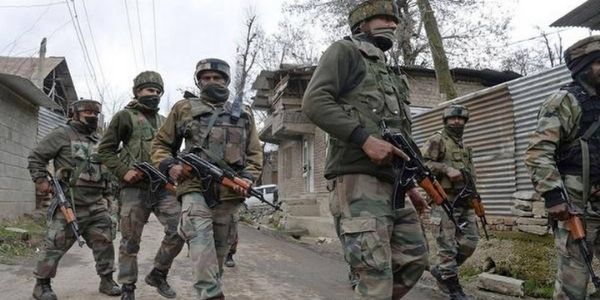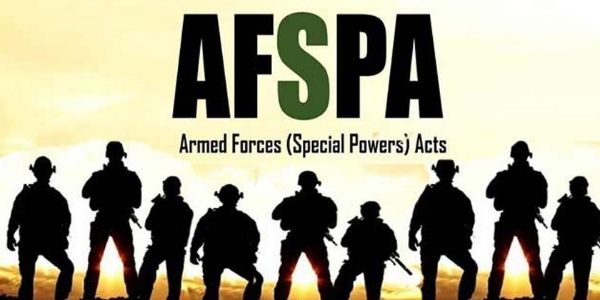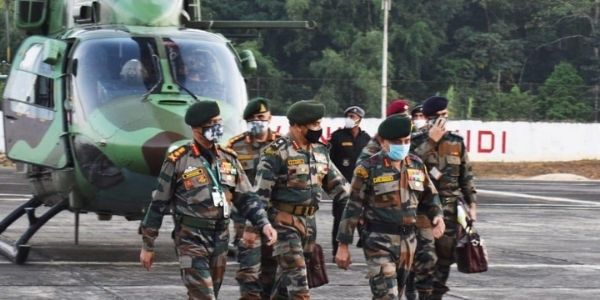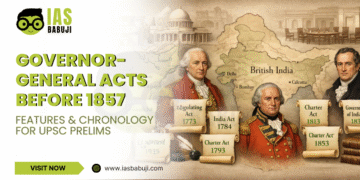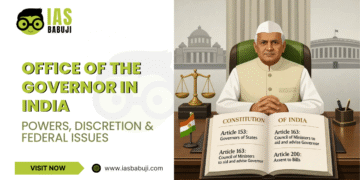When we talk about the UPSC exam, one thing which comes to our mind is the syllabus of the exam. Further, we all know it is the most difficult exam present in India. Besides, the exam syllabus is vast, and one must cover all topics. Further, in this article, you will find information on the Armed Forces Special Powers Act. Therefore, as part of the AFSPA UPSC exam study materials, let us know more on this topic. It is essential to know about the AFSPA act’s full form and other vital details for the AFSPA UPSC exam.
Introduction
Armed Forces Special Powers Act (AFSPA UPSC) is an act of the Parliament of India that gives powers to the Indian Armed Forces. Further, the main objective of AFSPA is to maintain law and order in the disturbed areas. Besides, this topic falls under the Indian Polity Syllabus for the UPSC exam. Therefore, we have added all the essential concepts to help you with the exam preparations.
As we all know about the IAS exam, it requires hard work and special efforts to clear the exam. It is not easy to clear the IAS exam, and one must show their dedication to the exam. Then, one goes through the official website for more details on the exam. Click Here. Additionally, there are two ways to prepare yourself for the exam. Either you can study on your own or take coaching classes. But, one must hard work to get the results.
What is Armed Forces Special Powers Act?
As we have mentioned earlier, the Armed Forces Special Powers Act maintains public order in “disturbed areas.” It means the armed forces have the authority to utilize or even open fire after warning a person who is found to be in contravention of the law. Further, a disturbed area is where “use of armed forces in aid of civil power is necessary.” Besides, under section 3 of the AFSPA, any area can be declared a disturbed area. It can be due to differences or disputes between members of different religious, racial, language, or regional groups or castes. Later, it came into existence in 1958 on September 11, 1958.
History of AFSPA Act
Talking about history, the AFSPA is also like other controversial laws,, and it is of a colonial origin. Further, it was launched by Mahatma Gandhi in 1942, in the backdrop of the Quit India Movement. Then, a day after launch on August 8, 1942, the movement became leaderless and turned violent at many places across the country. Further, leaders like Mahatma Gandhi, Jawaharlal Nehru, VB Patel, and a host of others had been put behind bars. Due to the massive scale of violence across the country. Therefore, Viceroy Linlithgow promulgated the Armed Forces Ordinance 1However; however, after Independence, Prime Minister Jawaharlal Nehru decided to continue with the law because of insurgency Assam and Manipur. Besides, one can go through the site for more details on the topic. Read More.
Due to this, the Armed Forces got a license to kill when faced with internal disturbances. The Indian government promulgated four ordinances in 1947 to deal with internal security issues and unrest arising due to partition in four provinces, Bengal, Assam, East Bengal, and the United Provinces.
What is a “disturbed area” ?
What is the meaning of the “disturbed area”? It is an area declared by notification under Section 3 of the AFSPA. Reasons for an area to become disturbed are differences between members of various religious, racial, language, or regional groups or castes or communities. Further, the central government or administrator of the Union Territory can declare the whole or part of the State or Union Territory as a disturbed area. Besides, as per section three, it can be called on in places where the use of armed forces in aid to protect civil power is essential.
Salient Features
Further, below you can look into the features of the AFSPA.
- In the first place, the Central Government and the Governor of a state have the full power to declare any paper or full state as a disturbed area if they feel that specific area has become necessary to disrupt the terrorist activity or any such activity.
- Further, Section 3 of AFSPA is to provide if at all the Governor of a state declared an official notification. Besides the Gazette of India then the Central government has the authority to deploy armed forces for assisting the civilian authorities.
- Once the area or a region is declared as disturbed, then it is important to maintain the status quo for a minimum of 3 months, as per The Disturbed Areas Act of 1976.
- Besides, Section 4 of AFSPS provides special powers to army officers. They have power in the disturbed region to shoot or kill any individual who violates the law. However, one must warn before opening fire. Later, all security forces can arrest without warning and carry without consent.
- Further, when a person is taken into custody, the person is to be handed over to the nearest police station as early as possible.
The Armed Forces – Punjab and Chandigarh Special Powers Act, 1958
The Central Government approved the Armed Forces of Punjab and Chandigarh, provided with the special powers Act on 6 October 1983. This enables the central armed forces to operate in the Punjab state. Further. The Act was withdrawn in 1997, roughly 14 years after it came to force.
The Armed Forces – Jammu and Kashmir Special Powers Act, 1990
Further, this Act was approved in Jammu and Kashmir due to extreme security instability in the area where it remains in force.
Further, this particular Act has been controversial. Some human rights groups started opposing it as being aggressive. Further, Manipur’s Irom Sharmila has been one of its staunchest opponents, going on a hunger strike in November 2000 and continuing her vigil till August 2016. Recently, the AFSPA has been extended for six months in Nagaland. Then, the Supreme Court has recently directed the CBI to constitute a Special Investigation Team.
Conclusion – AFSPA Act
In summary, the article talks about the AFSPA for the UPSC exam studies. Further, you will find all details of the AFSPA’s full form, history, features, and other essential information. In brief, this Act gives the Armed Forces power to kill or shoot those who violate the law as it is necessary to protect people in the country. Besides, as a part of the UPSC exam study materials, it becomes essential to know about this Act. Therefore, we suggest one make a note of all necessary points. It will help you with the exam preparations. Further, find such important topics for the UPSC exam, we have added all important information for the exam. Click here.
Concerning the IAS exam, it is essential for one to cover all the topics to get the best results in the exam. In the IAS exam, there are three main stages. As the main exam is descriptive, one must know how to write the exam. Further, you can read more here for more details on the exam syllabus, pattern, books, tips, and other essential information. Then, to get good results in the exam it is important you follow up on some exam tips as it will help you to remember things. Good Luck.

FAQs – AFSPA Act
The below FAQs will give you more details on the above topic.
AFSPA’s full form is Armed Forces Special Powers Act.
It is the place where public differences between members of different religious, racial, language, or regional groups or castes or communities.
It can be any exam. Know the syllabus and the pattern of the exam. Further, try to study from the best books as it will help you get the best knowledge for the exam.
This particular Act gives the army, state, and central police forces powers to shoot to kill people in areas declared as “disturbed” by the home ministry.
Editor’s Note | AFSPA
The above article gives you the AFSPA full form for the UPSC exam. It is one of the essential acts, and one needs to know the details. It will help you with the exam preparations. Further, we have covered information like history, features, and all the other information. As we have mentioned earlier, as a part of the UPSC exam, it is essential for the other competitive exams. Therefore, while reading the above article, try to note down essential points and study during the exam. However, one can’t remember everything, and you can just know about the important highlights for the exam. It is a good idea to keep one book for such points, and you can study it during the exam.
Like AFSPA UPSC, many acts are important to know for the exam. Therefore, in the above article, we have provided you with vital links that will help you to get proper information on the important topics.

